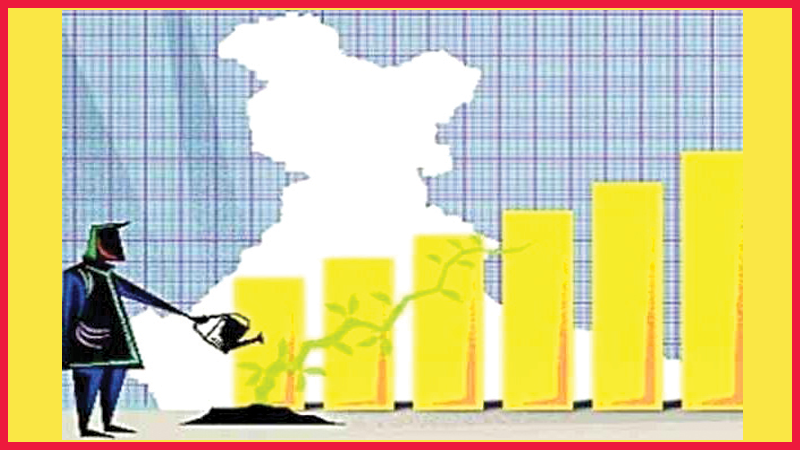
Arun Jaitley
The World Bank each year, in the month of October, announces its rankings on the ‘Ease of Doing Business’ for the next year. The performance of each nation is taken into consideration with the 1st of May being the cut-off date. This is an independent research by the World Bank based on objective criteria where grading are given under ten different heads as per the criteria specified therein. There is no place for generalities. The improvement has to be specific. India has now moved to position No.77 in a list of 190 nations.
India under UPA
India, during the ten years of the UPA, has witnessed high level of corruption, policy paralysis and abandonment of all reforms. UPA-II, for its five year tenure, witnessed a global ranking 134, 132, 132, 134 and finally 142. This was UPA’s miserable track record. India was the most difficult to do business with. Investors were wary of coming to India. On the contrary, there was a reverse flight of capital from India by the investors.
The NDA performance
The Prime Minister in 2014 itself announced that the Government’s objective was to ensure that India should be amongst the first fifty nations in the ‘Ease of Doing Business’. His call seemed to be a tall promise since India had to move up 92 positions. Amongst the top nations, in each of the ten categories, the competition is extremely tough and many countries with specific changes move ahead. Changes required a legislation, regulation, policy decisions and administrative reforms. They involved technical innovations. Moving up 92 positions is a daunting task. Not many were optimistic. They regarded it as an unachievable goal.
The Government started working on each of the criteria in 2014 itself. Announcement of a change, a legislation or a policy is not enough unless the effect of the same is felt on the ground. The World Bank doesn’t regard announcements as a worthy improvement. There is always a timeline between the reform and the upgrade.
Having inherited the legacy of position No.142, we moved up, in the first two years, and retained position No.130. In the third year, we have made a major jump of 30 positions to reach position No.100 and in the fourth year, we have moved to position No.77. This is a 65 point improvement in the first four years. We are still 27 positions away from the target. The impossible now looks plausible.
The upgrade of specifics
On the ‘Starting of Business’, we have improved in four years by 21 points. In ‘Construction Activity’, four year improvement is a massive 132 points. The unified bylaws now involve an application for grant of construction permit online. The permits are to be received online within a specified time. If they are not received within that time, there is a deemed sanction. For ‘Getting Electricity’, we have improved a phenomenal 132 positions. On registration of properties, we are still at position No.166. On ‘’Getting Credit’, we are at position No.22. On ‘Protecting Minority Investors’, we are at position No.7 – our highest position in any category. On ‘Trading Across Borders’, which involves customs, we have improved significantly to position No.80 from an all time high of 146.
After the enactment and implementation of the GST and the Insolvency and Bankruptcy Code, we have improved in ‘Payment of Taxes’ by 37 positions but are still at 121. In ‘Resolving Insolvency’, we have improved 29 positions but are still at 108. On ‘Enforcement of Contracts’, we have improved 23 positions but are still at 163.
The road for next year
On ‘Payment of Taxes’ and ‘Resolving Insolvency’, the GST and the NCLT,mechanisms are in place. Early results seem to be quite encouraging and when this full year’s performance is taken into consideration, it would be logical to assume that we will move up significantly in these two categories. Similarly, on ‘Enforcement of Contracts’, the Specific Relief Act has been amended to make the Act enforceable, leaving damages as only exception. Commercial courts have been set up in different districts of the country.
The Arbitration Act has been amended to provide for expeditious arbitrations and the least judicial intervention.
The other area where India has to make a special effort to further improve is in relation to ‘starting a business’. Current year our ranking of 137 has improved by 21 position in the last four years. It is still not a satisfactory position. There are several processes which are relevant both at the level of the Central Government and the State Governments. Much improvement is required in these areas.
In each of these criteria, there has to be an emphasis on reducing the time period for any business activity, reducing the cost involved and cutting down the number of procedures. This by itself is not formidable task. If we are able to keep the present pace of reforms in the above areas, the targets set by the Prime Minister would start looking a modest one. Only a focussed and a purpose oriented Government could have achieved this.
(The writer is the Union Minister of Finance, GoI)


